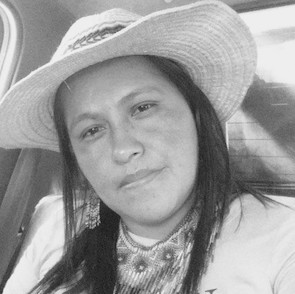Dear Friends,
This month we bring you updates on human rights issues in Venezuela, Colombia, Brazil, Peru, Ecuador, Chile and Argentina, what the change in President for Peru could mean for human rights and which countries have not ratified the Escazú Agreement. Human rights abuses continue to mount in Venezuela and Colombia. Please sign the three Urgent Actions on Colombia and another on Venezuela. We have good news from a past Urgent Action on Colombia, a new ruling by Ecuador’s Constitutional Court on abortion and a UN deal with Venezuela which will provide it with much needed aid. We invite you to join us on 19 May at 8 pm for a panel discussion on the ‘Eyes on Chile report – details in the Chile section below.
REGIONAL
The first-ever regional treaty to protect the rights of environmental defenders entered into force on 22 April (World Earth Day), having finally reached the required number of ratifications. The Escazú Agreement was adopted by countries from Latin America and the Caribbean in 2018 but needed 11 ratifications to enter into force. Of the South American countries, the Agreement has been ratified by Argentina, Bolivia, Ecuador and Uruguay. Chile initially promoted the deal, but the current government has declined to ratify it, describing the obligations as “ambiguous” and “imprecise”. Brazil, Colombia, Paraguay, Peru and Venezuela have also not yet ratified the agreement.
VENEZUELA
As of 1 May 2021, all Venezuelan civil society organisations must comply with abusive registration measures or face criminal prosecution. Such measures violate the rights to association, privacy, presumption of innocence, and puts civil society organisations and their beneficiaries at grave risk of criminalisation and reprisals. Amnesty International has issued a new Urgent Action to demand immediate repeal of this regulation.
Human rights defender Orlando Moreno was assaulted and detained by agents of Venezuela’s Scientific, Penal, and Criminal Investigation Service Corps (CICPC). Several organizations condemn the assault and arrest of Orlando on April 25 Venezuelan security forces, the latest in a series of escalating attacks against human rights defenders and organizations of the Venezuelan State.
According to Human Rights Watch, Venezuelan security forces have committed gross abuses against local communities in the conflict with armed groups on the Colombia border. Extrajudicial executions, torture, arbitrary arrests and prosecutions in military courts are the main concerns of the population. Those systematic abuses are similar with systematic violations that had led international investigations on human rights.
The United Nations food aid reached an agreement with the Nicolas Maduro government to develop the World Food Program (WFP) in Venezuela. The goal of this program is to support the supply of food for young people and children. This program will attempt to fight the humanitarian and health crisis.
COLOMBIA
On 12 April, President Duque signed a decree which allows the spraying of glyphosate to eradicate illicit crops to resume. Glyphosate spraying was stopped in 2015 as it could negatively affect the health and other related rights of hundreds of farming communities as well as the environment. In an Urgent Action Amnesty urges the National Narcotics Council to suspend aerial spraying with glyphosate.
In a another Urgent Action, Amnesty asks the authorities to provide full protection for Santander’s (North) Regional Corporation for the Defence of Human Rights (CREDHOS in Spanish). They have received death threats from the Magdalena Medio Block of the armed group FARC- EP.
Amnesty asks us all to take action by signing a letter to the Congress of Colombia asking them to protect human rights defenders and the environment. 177 or 53% of the world’s human rights defenders were killed last year in Colombia. ‘Defending human rights and the environment in Colombia should not be a death sentence. There must be guarantees and protection for those who speak out against economic and political interests that attack human rights and the environment.’ Please sign here.
Good news! A recent Urgent Action on behalf of Luis Alberto González Lopez has led to the Mayor of Barrancabermeja notifying the National Protection Unit (UNP) about the risk Luis Alberto González Lopez was facing and acknowledged his role as a human rights defender. On 3 March, the UNP strengthened his protection scheme providing him with one bodyguard and a vehicle. On 12 March, the Mayor organised a Meeting with FEDEPESAN to address their risk situation. FEDEPESAN also held meetings with the Minister of Interior and other State institutions in late March to demand further institutional support.

Frontline Defenders reports on the abduction and killing of Nasa indigenous governor Sandra Liliana Pena Chocue (see photo) 20 April. Prior to her killing, Sandra had spoken out against the increase in illicit crop cultivation in the reserve. She subsequently received threats from illegal groups that exercise territorial control in the department of Cauca. She reported some of these threats to the authorities.
Police and military have used excessive force against mostly peaceful demonstrators during the general strike called by unions to protest tax increases and a public pay freeze. 35 demonstrators are reported to have died, including a massacre of at least 8 people on 1 May in Cali, according to Colombia Reports.
According to the UN’s OCHA, clashes between armed groups in Argelia, Cauca department, have caused the displacement of 2,185 people. 59 people were injured by a car bomb, others were caught in the crossfire, armed groups have been recruiting boys and girls as young as 13 and at least 20 unexploded devices have been left in homes and public places. WOLA Colombia Peace report on the ongoing civil war, especially harsh in Cauca, ‘Many areas that had been under FARC influence before the 2016 peace accord are disputed between some of three or four FARC dissident groups, the ELN, and neo-paramilitary and organized crime bands.’
BRAZIL
Amnesty reports On 20 April, the Chamber of Deputies approved the requirement to process the bill on National Security Issues as an urgent matter and without public consultation. Amnesty’s Urgent Action ‘mobilized and brought together important actors, social movements and organizations that will keep monitoring the next steps regarding the discussion of the law. We will continue to demand a public consultation, analysis and public debate around the impacts deriving from this bill.’
Human Rights Watch calls for the reinstatement of the Group of Specialized Action in Public Security (GAESP) in Rio de Janeiro, which was abolished in March. ‘GAESP had made important contributions to preventing and prosecuting police abuse in Rio de Janeiro since its creation in December 2015. Police killings and other abuses continue to plague Rio de Janeiro largely due to widespread impunity. The Guardian reports on the killings of 797 mainly black and brown people in Rio State in the last nine months, with the acting governor ignoring the Supreme Court’s ruling by reinstating raids into favelas where most of the killings take place.
Human Rights Watch also calls on Brazilian federal authorities to immediately remove miners who have unlawfully entered the Munduruku Indigenous territory in the Amazon rainforest. ‘Indigenous people in the Munduruku territory are facing land invasions, environmental destruction, and serious threats by criminal groups involved in illegal mining.’ Wildcat miners are supported by organised criminal gangs.
According to the Movement of Dam Affected People (MAB), one of the dams in the community of Aurizona, in Godofredo Viana, Maranhão, broke on March 25. The tailings would have contaminated Tromaí river (see photo above). The mine is owned by the Canadian private group Equinox Gold.
PERU
The results of the first round of the presidential elections in Peru do not bode well for human rights. The run-off will be between Pedro Castillo, a provincial primary school teacher and dissident union leader who ran on a Soviet-style policy platform and has promised to abolish the constitutional court, and Keiko Fujimori, daughter of the ex-President Alberto Fujimori, who is currently serving a 25-year prison sentence for directing death squads to carry out two massacres of alleged terrorists and is also on trial for the forced sterilisations of thousands of mainly poor and indigenous women. Keiko herself is awaiting trial on accusations of money-laundering, for which prosecutors are asking for a 31-year sentence. Both have expressed ambitions to clamp down on the media and roll back protections for gender rights.
This article in The Guardian reports on the death threats and murders of indigenous leaders in Peru seeking to defend their communities’ land against drug gangs targeting their land to grow coca under cover of the pandemic.
ECUADOR
Guillermo Lasso, a conservative businessman, has been elected as the next President of Ecuador, having defeated Andrés Arauz, a left-wing economist, in the election run-off.
Ecuador’s Constitutional Court has decriminalised abortion in all cases of rape. Announcing the decision, the Ombudsman said the ruling “was possible thanks to the women and feminist groups who have consistently battled for a more fair and egalitarian society”. The law currently allows an abortion only when a woman’s life or health is at risk or if a pregnancy is the result of the rape of a woman with a mental disability. However, the Court’s ruling means that undergoing an abortion in other cases of rape will no longer be a criminal offence. President-elect Lasso said he has “full respect” for the court’s ruling. “The independence of the government branches and the secular nature of the state are principles that cannot be negotiated.”
ARGENTINA

Tehuel De La Torre, a young transgender man, was last seen alive on March 11 as he was heading to a job interview. He has been missing ever since and the police have arrested two people accused of giving false testimony as a part of a cover- up. The case of Tehuel has raised awareness on the violence against the LGTBIQ community in Argentina. Following his disappearance, an illustration of De la Torre, with the caption “Please Share As If He Were Cis” circulated.
CHILE
We are delighted to take part on the Festival of Social Justice, organized by Stamford and Rutland Amnesty International. On this occasion, our Country Coordinator for Argentina and Chile will be hosting the second part of the Chile in Focus sessions. We bring you a Q&A session about the current unrest in Chile and ‘Eyes on Chile’ report. Chile Solidarity Network founder Carole Concha Bell and Amnesty member Jorge Diaz-Munoz will also be part of the panel. The event will take place online, on Wednesday 19th May 2021 at 8pm. You can register here.
All the best,
South America Team – Richard Crosfield (Colombia and Brazil), Carla Torres (Chile and Argentina), Javier Martinez (Venezuela) and Graham Minter (rest of South America).